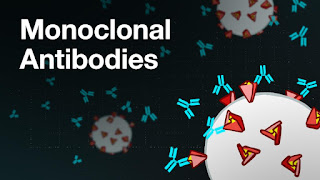The best way to keep your child from getting Covid-19 is to get them vaccinated, and if they test positive for the disease, it’s important to see if they qualify for a treatment called monoclonal
antibodies to reduce their risk of hospitalization, says a pediatric physician at
UK HealthCare. “We’re still in the midst of a big surge of pediatric Covid cases that really started earlier this summer,” Dr. Sean McTigue, medical director for pediatric infection prevention and control at
Kentucky Children’s Hospital, said at a news conference.
“Since July 30, we have had . . . more than six times as many admissions to Kentucky Children’s Hospital for either severe or critical Covid-19 infections in children than we have for the entirety of the pandemic up until that point.”
In a case of severe Covid-19, a patient requires oxygen support or mechanical ventilation, and sometimes more advanced life-saving measures.
McTigue said the vast majority of their Covid-19 patients have been 12 or older and thus eligible for a coronavirus vaccination.
“We have not yet had a single patient who has been immunized to be admitted to Kentucky Children’s Hospital for severe or critical Covid,” he said. “So immunizations still appears to be our best tool in our toolbox to help fight this infection and to help keep kids healthy and out of the hospital.”
The state Department for Public Health reports that 47% of Kentucky’s youth aged 12 to 15, and 52% of those 16 and 17, have received at least one dose of a coronavirus vaccination.
Another way to keep children out of the hospital is for those who test positive for the virus to take a monoclonal antibody treatment, which are laboratory produced antibodies that mimic the body’s natural immune response and reduce the likelihood of severe infection and hospitalization.
McTigue said this treatment is now available for children who are over 12, are close to 90 pounds in weight and have a high-risk condition, such as diabetes, cancer, severe lung diseases and obesity, which is common. “Our number one driver of risk for admission the the children’s hospital has been obesity,” he said.
McTigue cautioned that because society tends to skew towards being overweight and obese, a child may look fairly average, but actually meet the criteria for obesity, which puts them at a higher risk for Covid-19 complications. Kentucky
ranks No. 1 in the nation for childhood obesity among children ages 10-17, at 23.8%.
“If your child is infected with Covid-19, call your primary-care provider. They will absolutely be able to answer that question as to whether or not your child is considered obese,” said McTigue. “One good rule of thumb I can say, though, is if you have to ask the question, there’s a good chance that your child may actually meet the definition for obesity. It’s much easier to meet than than most people think.”
The monoclonal antibodies have been available for several months, but it has taken some time to build an infrastructure to provide them. Toward that end, McTigue said Kentucky Children’s Hospital has created the
Pediatric Specialty Infusion Clinic to offer the monoclonal antibodies to children.
There is no waitlist at the infusion clinic and children need a referral from their primary care provider to get the treatment, said McTigue. He added that the treatment should be given within 10 days after the onset of symptoms and that the earlier they are given, the more beneficial they are.
“I think what’s very important is for parents to know that this exists, know that it’s out there, and know that if their child does test positive for Covid-19 that they should be calling their PCP to discuss with them whether or not they might be a candidate,” he said.
In Kentucky,
nearly 20% of all coronavirus cases have been in people under 20.
